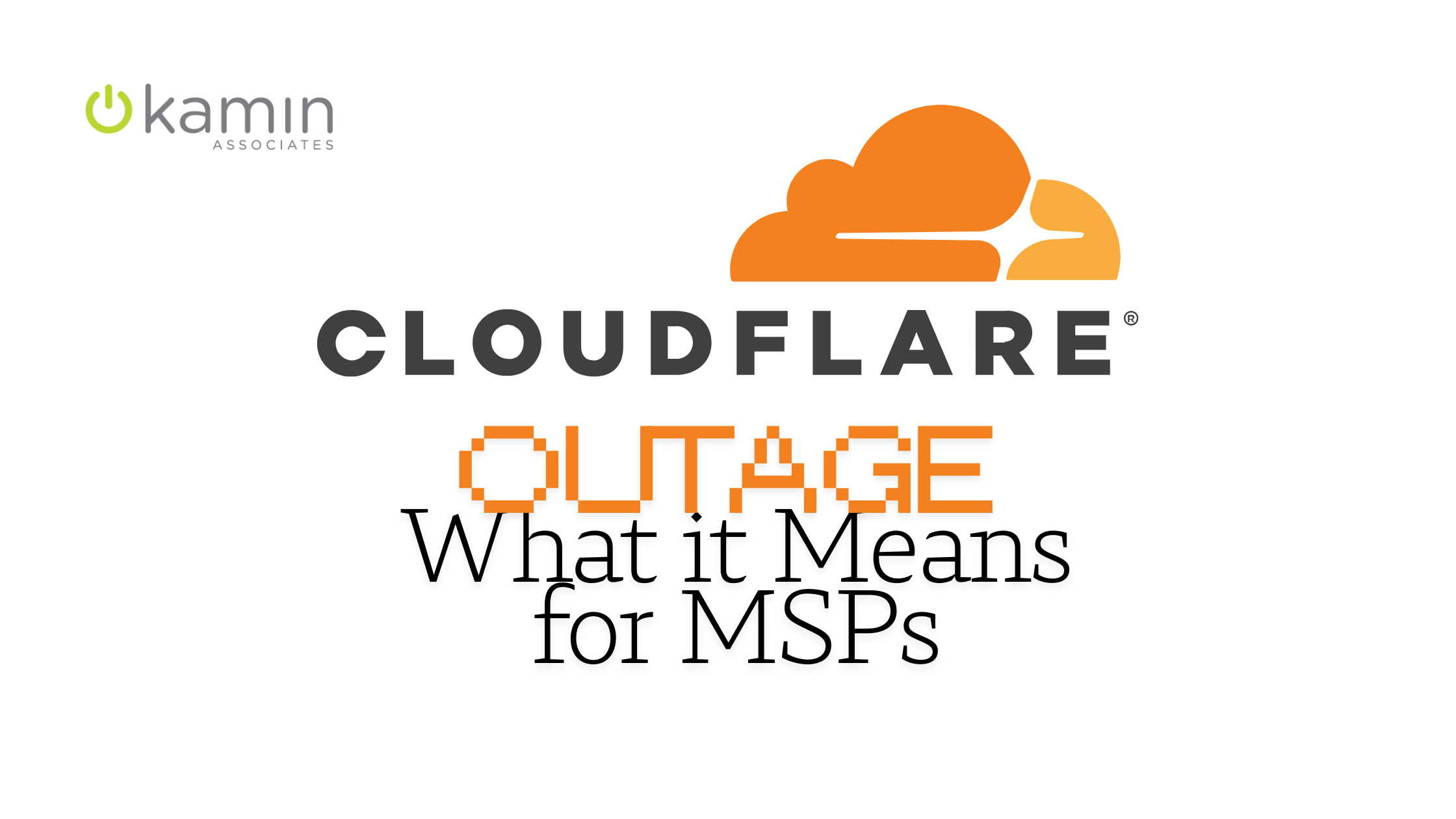Yesterday’s Cloudflare outage created disruptions across the internet, impacting websites, SaaS applications, APIs, and essential business operations worldwide. For many organizations, it served as a reminder of how interconnected modern infrastructure has become—and how dependent businesses are on third-party networks they never see directly.
For Managed Service Providers (MSPs), events like this aren’t just news stories; they’re moments that highlight the importance of reliability, communication, and strategic planning.
Below is a breakdown of what happened, how it affected businesses, and what MSPs should take away from the incident.
What Happened During the Cloudflare Outage?
Cloudflare is one of the world’s largest content delivery networks (CDNs), DNS providers, and security layers for millions of websites and applications. When Cloudflare’s network experiences issues, the effects ripple outward quickly.
During the outage, users experienced:
- Slow or completely inaccessible websites
- Unresponsive SaaS platforms
- Failed API calls
- Intermittent connectivity or login failures
- Reduced performance for services relying on Cloudflare security or routing
Even businesses that weren’t direct Cloudflare customers often felt secondary impacts because the tools they use—CRMs, help desks, billing systems, communication platforms—rely on Cloudflare behind the scenes.
The Broader Business Impact
Because Cloudflare sits between users and the services they access, downtime creates immediate and noticeable disruptions. Some common issues that surfaced during the outage included:
- E-commerce downtime, resulting in lost sales
- Support ticket delays, as portals and internal tools became inaccessible
- Internal communication slowdowns, especially for web-based platforms
- Customer frustration, particularly when outages occur during business hours
Even short outages can affect workflow momentum and decrease productivity. For companies without IT support, identifying the source of the disruption is even more challenging—leading to confusion, finger-pointing, and operational standstills.
Why This Matters for MSPs
While MSPs cannot prevent outages at major global providers, they can control how they prepare for and respond to them. Events like the Cloudflare outage highlight critical responsibilities MSPs carry as technology partners.
1. The Importance of Redundant Systems
Outages underline the need for layered redundancy. MSPs can help clients mitigate downtime by implementing:
- Secondary DNS providers
- Multi-cloud or multi-region failover strategies
- Backup communication systems
- Locally cached or offline workflows for critical operations
A single-vendor dependency is convenient until that vendor goes down.
2. Proactive Communication Builds Trust
During outages, clients want answers quickly. Even when the issue is outside your control, MSPs who communicate early and clearly are perceived as proactive and reliable.
Effective communication includes:
- Early alerts acknowledging the issue
- Plain-language updates as the situation evolves
- Temporary workarounds when available
- Post-outage summaries explaining what happened
Most clients don’t expect perfection—they expect transparency.
3. Understanding Third-Party Dependencies
MSPs should map out which client systems rely on services like Cloudflare. This includes:
- SaaS tools used daily
- Client websites
- Remote access tools
- Email and hosting providers
When you understand dependencies, you can quickly determine which clients are affected and provide more personalized updates.
4. Strengthening Continuity Planning
Moments like this are a perfect reminder to revisit a client’s business continuity plan. Many businesses underestimate how much they rely on external infrastructure.
MSPs can help clients ask the right questions:
- What are our critical systems?
- What happens if they go down?
- How do employees continue to work?
- How do we communicate with customers during downtime?
A well-built continuity plan turns outages from crises into manageable inconveniences.
5. Opportunities for Education
Clients often assume outages are caused by their local network or devices. MSPs can use incidents like this to educate clients about:
- Global infrastructure
- The role of CDNs and DNS
- How widespread outages occur
- Why strong IT strategy matters
The more clients understand, the more they value your expertise.
Turning an Outage Into an Advantage
While outages are disruptive, they’re also moments where MSPs can demonstrate leadership and reliability. The MSPs who stand out during events like these are the ones who:
- Stay ahead of client questions
- Provide accurate information quickly
- Offer reassurance and clarity
- Identify improvements for the future
These moments strengthen client relationships and reinforce the value of proactive IT management.
Final Thoughts
Yesterday’s Cloudflare outage was a clear example of how dependent organizations are on global digital infrastructure. For MSPs, it serves as a reminder that resilience isn’t just about preventing issues—it’s about preparing for the inevitable, communicating effectively, and guiding clients through unexpected disruptions.
Technology will always have vulnerabilities, but strong strategy, redundancy, and leadership are what keep businesses running smoothly when the unexpected happens.





